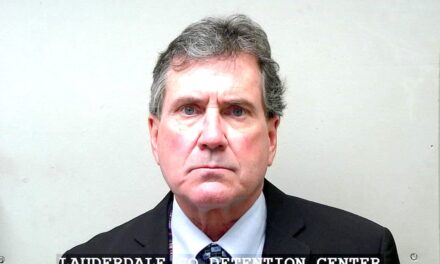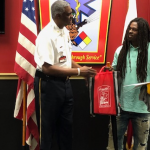Mayor Randall Woodfin and state Rep. Juandalynn Givan, D-Birmingham have been going at each other on social media in the wake of a mass shooting in the city. (File)
” data-medium-file=”https://www.birminghamtimes.com/wp-content/uploads/2024/09/FUED-300×188.jpg” data-large-file=”https://www.birminghamtimes.com/wp-content/uploads/2024/09/FUED-1024×643.jpg” tabindex=”0″ role=”button” />
By Barnett Wright | The Birmingham Times
A number of Black leaders across Birmingham have been following the back and forth between Mayor Randall Woodfin and state Rep. Juandalynn Givan, D-Birmingham, since last week’s mass shooting in Five Points South with a sense of bewilderment.
The public spat between the two has played out on social media and during some television and talk radio interviews. The concern, many leaders say, is the impact the quarrel has on the people who need leadership the most during a time of crisis – the residents, especially in the African American community.
Of the 135 homicide victims in Birmingham last year, 96 were Black males, 19 were Black females for a total of 115, according to AL.com. That’s a staggering 85 percent of all murder victims.
“There’s an old African proverb: ‘When the elephants fight. The grass suffers,’” said popular radio talk show host Gary Richardson, who is president and CEO of Richardson Broadcasting Corporation (which operates WJLD 1400 AM and WAYE 1220 AM). “The grass in this case is ‘the people.’ We don’t need our leaders fighting. We have too big of a problem to get mired down in petty differences.”
“We have to be able to disagree with one another because we are not a monolith, but there’s a way to do that … what we’re seeing is uncalled for,” said Horace Huntley, Ph.D, a retired professor from the University of Alabama at Birmingham. “We have to agree to disagree, but do it in a manner in which it’s going to not have an adverse effect … which seemingly is happening when you do it in a way the two of them are doing it.”
Last weekend, authorities in Birmingham said “multiple suspects” opened fire in Birmingham’s busy entertainment district, killing four people, injuring 17 and leaving city residents shaken.
Givan said Monday that maybe the Alabama National Guard needs to be deployed to help the short-staffed Birmingham Police deal with the city’s violent crime problem.
Woodfin posted a dig at Givan on social media on Monday. On his Facebook page, the mayor shared headshots of all the state lawmakers representing Jefferson County to say thanks “for working in partnership with City of Birmingham to address our public safety issues.”
But on Givan’s photo, the mayor added in red text, “not you.”
Meanwhile, Givan responded by posting a collage of Birmingham’s homicide victims in 2022 and 2023, writing of 2024 that 2024 “unfortunately the numbers continue to grow.”
“This is the board that should matter to the mayor,” Givan wrote, referring to the photos. These lives lost under his leadership and the murders unsolved!!!”
The state lawmaker said she stood by her National Guard comments and said the mayor owes her an apology over the meme.
“Bodies are dropping like water from a running faucet in Birmingham and the mayor has the time do a scratch off of me? I’m unmoved and certainly unbothered by such a temper tantrum move by a boy with a big job!”
Asked during a press conference Tuesday about Givan’s statement about the National Guard, Woodfin said, “That’s just a whack statement.” (A spokesperson for Gov. Kay Ivey said on Wednesday the governor has no plans to deploy the National Guard.)
Reached late Wednesday evening for comment about the rift, Woodfin told The Birmingham Times that he wants to “work with the Jefferson County delegation in addressing the issues of public safety.”
Givan, reached late Wednesday, told The Birmingham Times much of what she has been saying for the past week.
In a WBRC interview on Monday the state Rep. stated that the city was “unsafe” and “under siege.” On Tuesday, she told 1819 News that she was disappointed that Woodfin decided to engage in personal attacks while his city was in disarray. “That’s it for me,” Givan told the outlet. “You’re a little boy in a big job … I can only speak to the city of Birmingham where I am. It’s a crisis everywhere.”
What surprised some is that Woodfin and Givan have a lot in common: both are lawyers; both attended HBCUs (Woodfin, Morehouse College; Givan, Miles) and both serve many of the same constituents in Birmingham. And since the shooting both have talked in their own ways about initiatives to make a safer city, including a robust police force.
“People get along and they don’t get along,” Givan told The Times late Wednesday. “That’s not going to stop anybody from dying in Birmingham, it’s not going to make resolutions come any faster … if someone asks me a question, I’m going to answer.”
The one question many have been asking is whether Givan is planning to run for Birmingham mayor next year. Right now, she doesn’t live in the city.
“You have a certain amount of time to move or be living in the city limits before you qualify — so that goes out the window,” she said, ” … people do it all the time.”
Both elected officials — Woodfin is seeking his third term as mayor; Givan was first elected to the Alabama House of Representatives in 2010 from the 60th District — are “two strong-willed individuals; two strong personalities … [but] we have too many problems to deal with,” Richardson said. “This gun culture, this gun violence, these gun laws … have become open season on our community.”
With two prominent leaders at odds, “That’s not the kind of front we need to show if we’re going to regain control on what’s going on in the city,” said Bishop Jim Lowe, Senior Pastor of the Guiding Light Church in Birmingham, “people need to sit down and talk … If our leadership is not unified the people will not be unified. That’s the problem we have right now. The leaders are not unified.”
Huntley, the retired UAB professor, who has worked extensively in the fields of Civil Rights, Labor History, Black History and African American Studies has seen this kind of rift before. Dr. Martin Luther King Jr. and the Rev. Fred Shuttlesworth had bitter disagreements during the early days of Birmingham’s Civil Rights Movement.
“But those disagreements were fought behind closed doors, they stayed in the closet,” Huntley said. “When you come out you should be unified.”
The same united front is needed now as much as ever, said those interviewed.
“We’re not going to win around our differences but around our humanity,” said Steven Hoyt, former Birmingham City Councilor and pastor of Noble Chapel CME Church in Southwest Birmingham. “No one person has all the answers, but you might come together collectively to say how do we deal with this … these young folks are killing without conscious. There’s a serious disconnect in my estimation with humanity because no one seems to care. You have to find common ground and I haven’t seen it in the last few days.”











